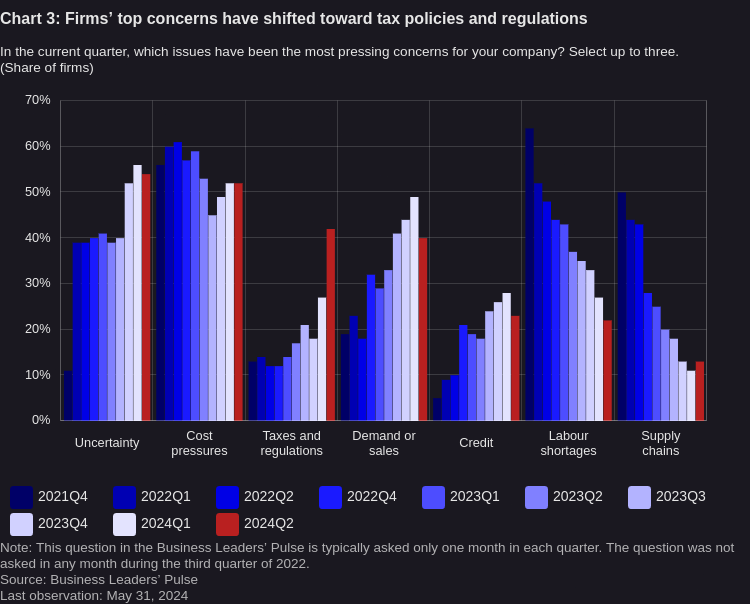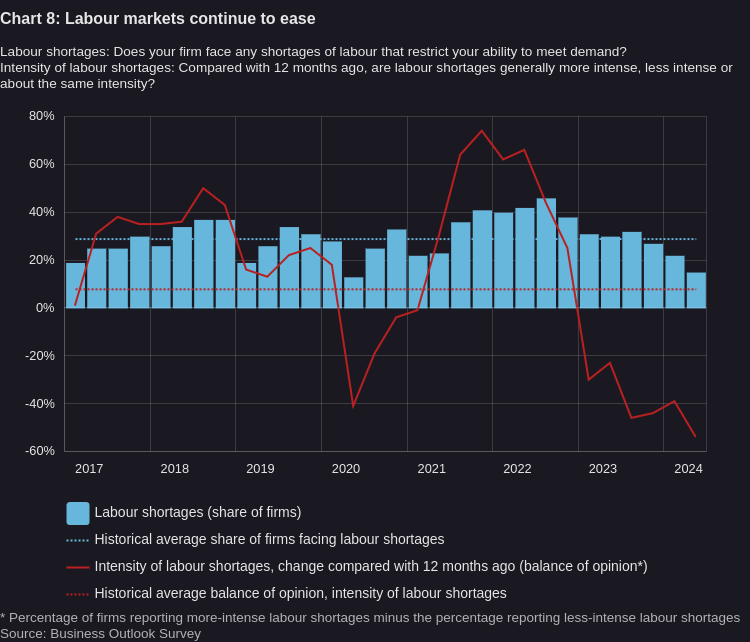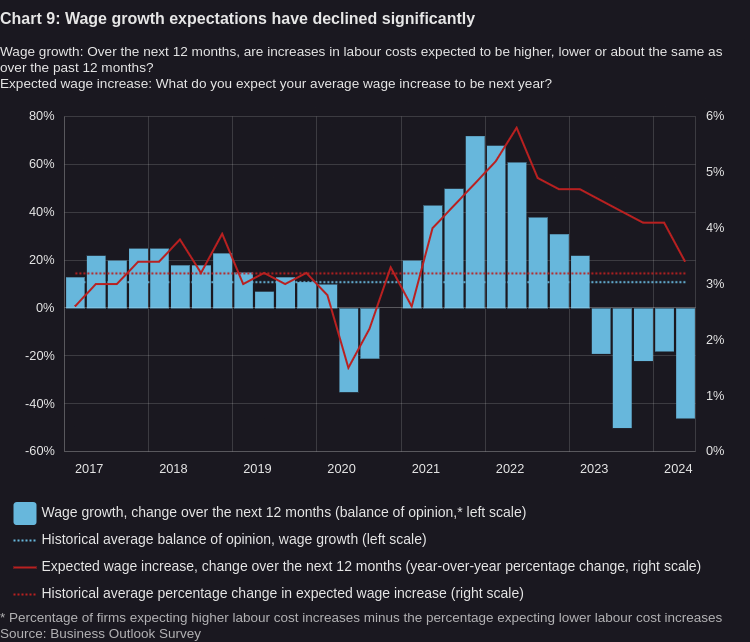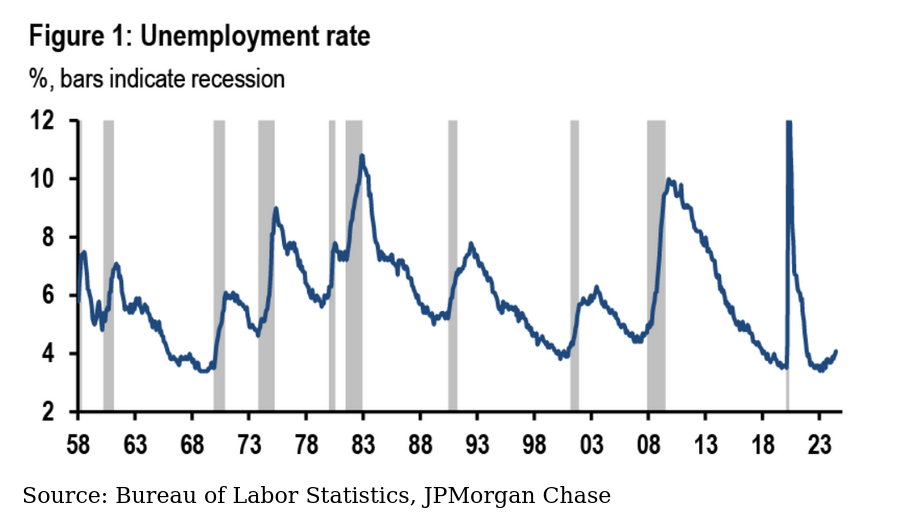July 22, 2024
Canada's economy according to business
These are from last week's release from the Bank of Canada, but with all the news noise I didn't get to look at them.



Labour market tightness and wage growth expectations are way down. The focus of capital is on reduced tax bill and reduced regulations.
Essentially, we have returned to pre-pandemic situations just as we are headed into elections that are based on post-pandemic sense of the economy.
People said that we are post-neoliberal. However, I am not sure. The demands for capital are to some how bleed the rock when it comes to regulations and taxes and the right is lining-up behind these programs. The only way for regulations and taxes can go lower is if we subsidize both with borrowing. But, borrowing is also at an all time (and likely unsustainable) high level.
Something will have to give.
We are supposed to be entering a period of economic growth. At least according to the long-waves of borrowing and repayment that drive most "macro" models. However, the pandemic, geopolitics, the ongoing issue of climate change, and weird politics nationally has driven prices and borrowing higher with little potential for growth to drive reduction in debt levels.
This could be the lost decade (or two) where we never reassert a growth program to pay for the previous recession. In the USA, there is an indication that they are in a mini recession even with the massive profit subsidies being handed out and the increase in war spending.

Even China has had to reach to economic supports today. They decreased interest rates to drive investment in manufacturing transition. They are facing constraints on their growth model because of the increased marketization of their economy.
If there is another lost decade similar to the one we just experienced between 2009 and 2019, the pressure on the state to drive profitability will be very high and come at an increasing human cost. I know I keep saying it, but I am hard pressed to understand how the left, who have the only economic program to respond to anemic profitability, are not more vocal about their alternatives?